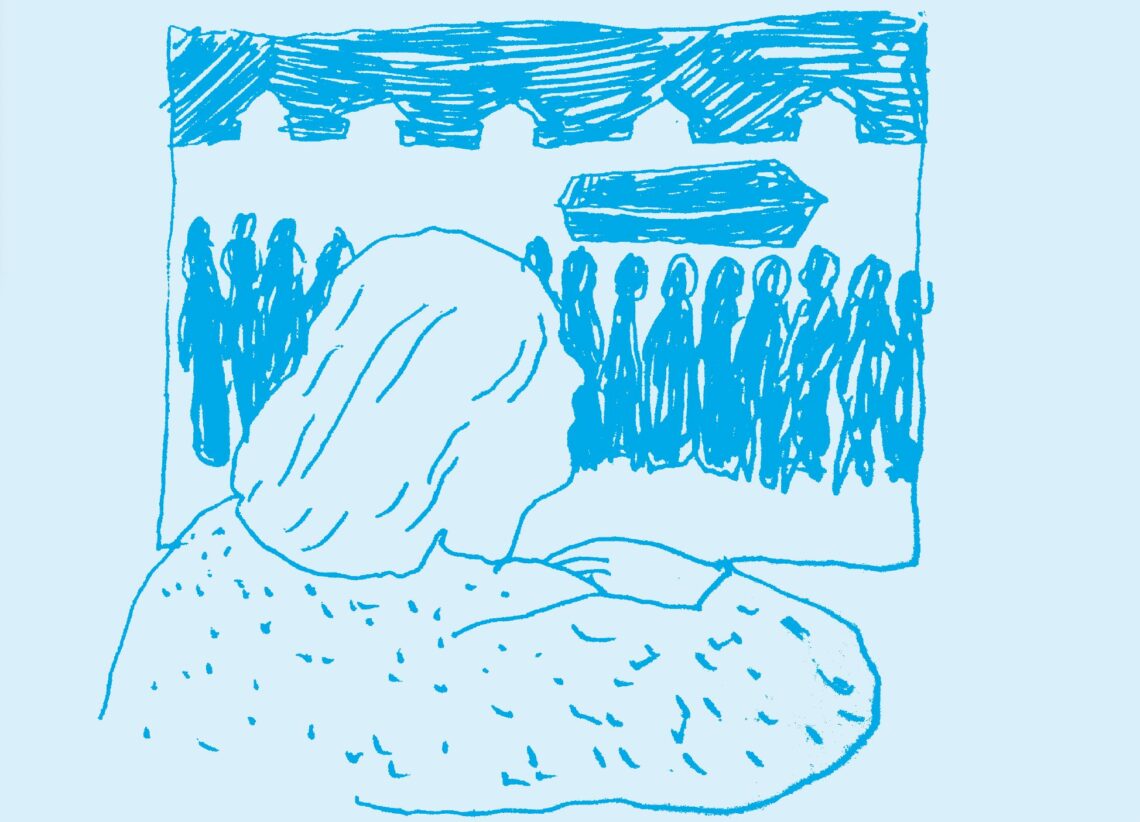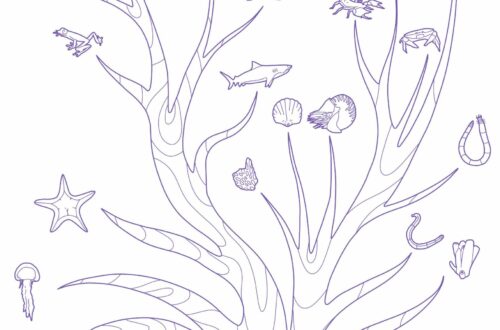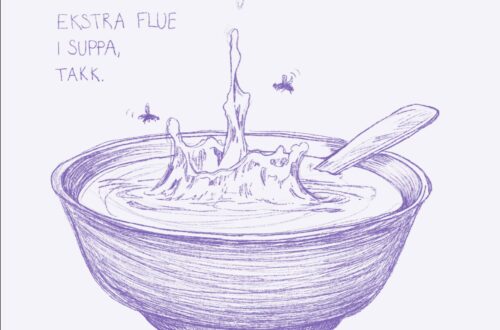Written by Hannah Gebreyesus Illustration by Mette M. Kaljas
When I was 15 years old, my grandmother died. I didn’t know her very well. She lived in a country I didn’t live in. She spoke a language I didn’t speak.
My grandmother lived her whole life in Ethiopia. The only time she ever visited Norway was when I was still in diapers. I tried asking my mom about it and she told me, “she was here for three days, then she went home” and when I asked her to elaborate she told me, this time more exasperated, “she was here for three days, then she went home.» Then she moved on to telling me about the new cups she just bought at a sale.
As a child, I visited Ethiopia a few times, but the only visit I remember was back in 2014. I hadn’t been there in a good while, as back then I had refused to travel there because I would much rather spend my summer in Norway, with my friends. When I was 13, I finally decided to join my mom and visit Ethiopia for a month.
The first time I walked into my grandmother’s room my immediate thought was “she seems so old.” She was very sick, and couldn’t walk or remember much. I had not been there for years and when I walked in through the door, she looked up at me and started crying. As I sat down next to her, she held my hand and began to pray. I did not want to cry because it felt too embarrassing, so I just sat there and waited for the moment to pass. As I was sitting in the room holding her hand, I felt both immensely happy and sad. While it was nice to finally see my grandmother, I felt very disconnected from my feelings towards her and the situation in general. I felt bad for not having visited her for such a long time, and for having lost so much time with a woman who was part of my family. I felt bad for not knowing the language, and, at the end of the day, for not really knowing this woman. I felt bad for not having any memories with her and for feeling like I didn’t belong in this family.
All these people; who were apparently my family, but that I didn’t know, this culture; which was apparently my own, but that I didn’t know. I did not belong in this country. I didn’t feel like I came home; I felt like a tourist, who was waiting for the weeks to end, so that I could finally travel home.
«Visiting my grandmother felt like a reminder of all I had lost in my fight to be Norwegian.»
As a child, you don’t want to be different. Everyone goes to the same stores; buys the same clothes; uses the same phrases. Talking in a different language than your friends means that you are different. At that age the last thing you want is to be different.
At the age of six, I wanted to join a group of kids playing a game. They told me that I couldn’t join, because I didn’t have pierced ears. I replied that I did, in fact, have pierced ears, I just wasn’t wearing any earrings. Their logic didn’t make sense, but still not wanting to let me join their game, their new rule was that only blondes could join, and, as my hair was black, I was not allowed. Of course, my friends and I probably made up again the next day, but it still remains in my memory as another reminder of how I was different from the other kids.
When I was very young, speaking another language felt like a source of pride; like there was a secret language that only my mom and I could speak. When I grew up, it turned into a constant reminder of how I was weird, and different, and didn’t belong, so I stopped speaking it. I refused to acknowledge my mom when she would ask a question in any other language than Norwegian, and after a while, I forgot how to speak it at all.
Visiting my grandmother felt like a reminder of all I had lost in my fight to be Norwegian. Sometimes I wonder whether it was all just a conscious choice I was making, or if it was something that was bound to happen, a self-fulfilling prophecy that I accidentally fulfilled.
One time I asked my mother what my grandmother liked to do, and she told me “nothing”. I asked, “did she like to dance? Did she like music?” But no, she didn’t sing, she didn’t dance; that was not the life she was allowed to live: “When men tell you to sit, you sit, when they tell you to speak, you speak. But she was good at listening, she always listened to people.”
When inquiring about my mother’s own dreams as a child, she told me that growing up she didn’t have any dreams, she just lived. What I remember most of my childhood are those of my fantasies; the universes I could feel at my fingertips, written on top of old scribbles and notebooks I stole from my mom, detailing her unspoken histories of past experiences until slowly all that is left is mine.
When I was 15 years old, my grandmother died. My mom came down the stairs and knocked on my door, she was crying when she told me what happened. It is the only time I’ve ever seen her cry. That day my dad and I booked her a ticket and a few hours later my mom was on a plane to Ethiopia. I couldn’t go to Ethiopia and I can’t recall much of what I did that day. The only thing I remember is canceling some plans I had with friends and staying in with my dad, watching football. My mother told me that the funeral was beautiful, that they carried my grandmother’s casket through town, that they were dancing and playing music in her memory, and that so many people attended the funeral that you could barely see where the lines of people ended.







